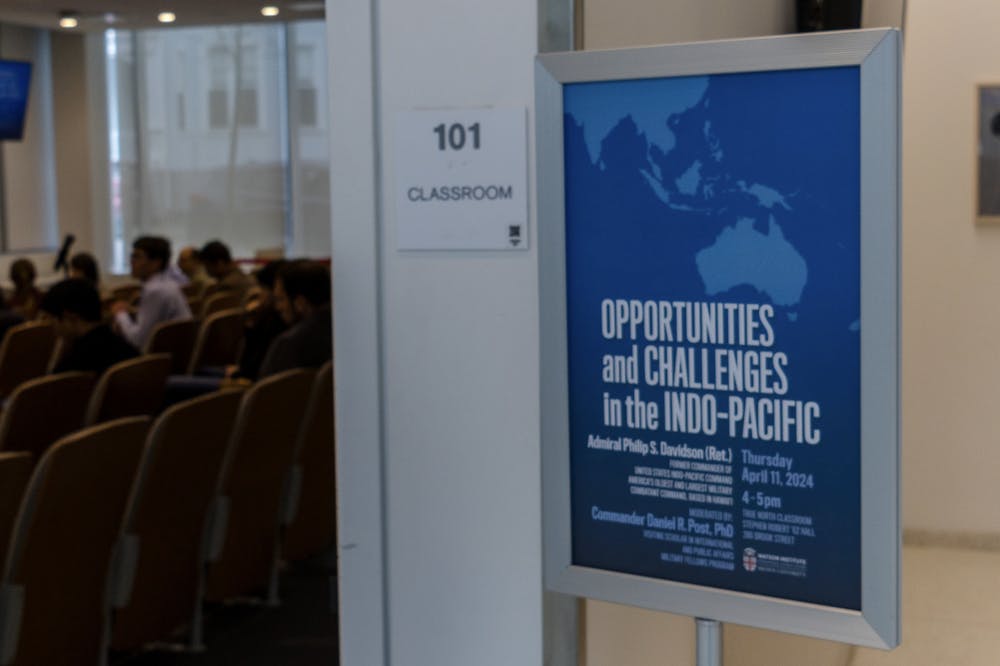Retired admiral Phillip Davidson portrayed China as a rising threat to regional stability at a Watson Institute discussion titled “Opportunities and Challenges in the Indo-Pacific” on Thursday afternoon. Davidson, who served as a naval officer for 39 years before his retirement in May 2021, headed U.S. Indo-Pacific Command from 2018 to 2021.
At the event, Davidson referenced instances of American collaboration with Japan, Australia, the Philippines, South Korea and other regional allies that he said could deter future conflict.
He also pointed to ongoing conflicts, including the war between Russia and Ukraine, as reasons to be wary about the future. Referencing warnings from U.S. officials that China could invade Taiwan by 2027, Davidson said that China is currently taking “a lesson or three” from Russia’s failure to accomplish its strategic and military objectives in Ukraine to prepare for the potential invasion.
He also criticized China for interfering with Taiwanese airspace, rehearsing attacks near Taiwan’s shores and provoking Taiwanese ships in international waters. China does not consider the island to be a sovereign political entity.
Davidson said the U.S. and its allies should bear the responsibility for deterring a Chinese attack on Taiwan. “It takes action now to prevent war,” Davidson said, adding that “more is needed” to deter a Chinese invasion.
The retired admiral projected optimism about American abilities to strengthen relationships with its allies in time to deter an invasion, praising U.S. allies for their willingness to provide “money, manpower and their military might” to help protect Taiwan and prevent the assault of “liberal values” by “autocratic regimes.”
Davidson highlighted several aspects the U.S. and its allies can improve upon to deter a Chinese invasion of Taiwan, including improving joint lethality and the ability to strike targets at further distances — from sea, air, land, space and cyberspace. To do so, the U.S. must improve existing infrastructure and provide more effective logistical support, he said.
Davidson also said that the U.S. should enhance its existing military exercises with its allies. He noted that the U.S. already conducts bilateral military exercises with Japan in the Pacific, but has begun to invite the United Kingdom, Australia, South Korea and the Philippines to participate in joint military training in the region.
In particular, Davidson cast the U.S.-Japan relationship as the most important alliance in the world, and celebrated the increasing level of collaboration between the two countries in recent years — including the recent revision of a mutual defense pact to include space as an area that, if attacked, would require either side to come to the aid of the other.
On Thursday, Japan’s Prime Minister Fumio Kishida met with President Biden in Washington, D.C. On the same day, they met with Filipino President Bongbong Marcos to discuss defense strategy in the Pacific.
Terren Wise ’26, a student veteran at Brown studying engineering, praised the Watson Institute for bringing in current and former defense leaders — something he believes is “very important just because of what’s going on geopolitically.”

Teddy Fisher is a senior staff writer who studies International and Public Affairs and is passionate about law, national security and sports. He enjoys playing basketball, running and reading in his free time.





